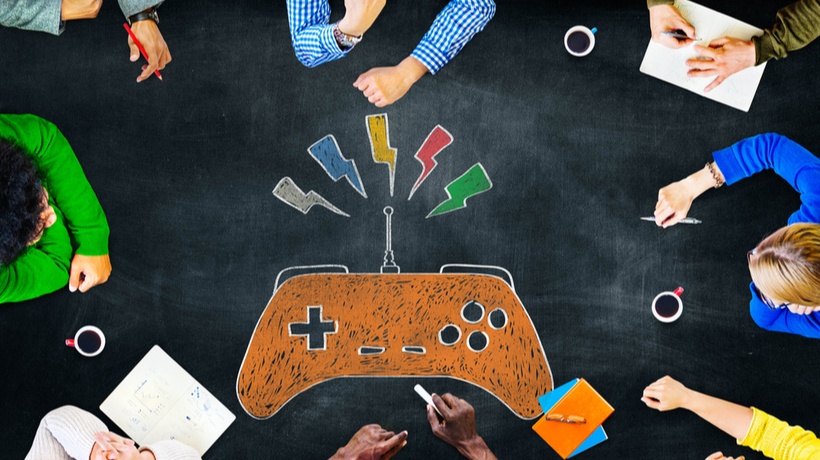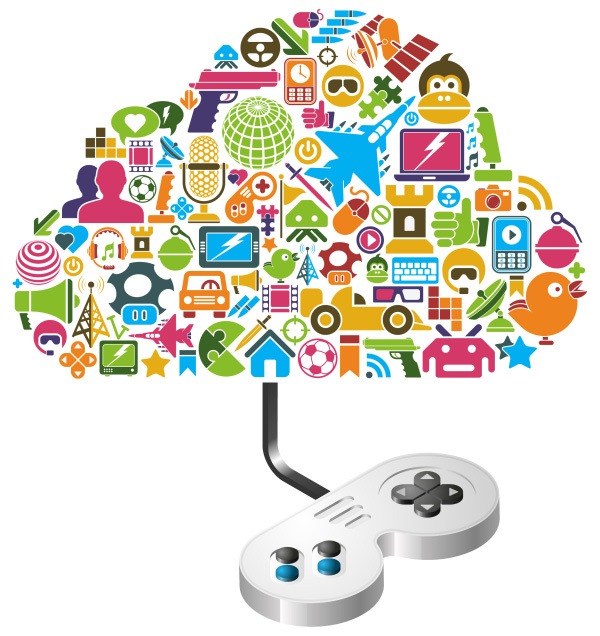Why Learning Has To Be A Game: The Importance Of Change
Increasingly we see gaming in the learning industry, and this trend is going to grow because learning has to be a game. If it is un-challenging or overwhelming, we find the learner switching off. In both cases, the learner doesn't see how he can have a game. The excellent student is bored with the pace and the slow student doesn't feel there is a point to even try.
However, when gamification becomes an entertainment factor, it has missed the boat altogether.
Why? - Learning is not entertainment; it is a hard process as its goal is .... (drums please): change, more change, only change, change in your mental boundaries!
It is so key because we can change the "vector", nothing else can. The "stone" can't, the "animals" can't—their actions are reactive—, the "corporation" can't, it is always caused by the individual, namely "you" and "us."
Learning has to produce change. You get better; it isn't even a two-way road, because you can't get worse ever! You can stagnate and, yes, eventually the world moves on and you are left behind; true, but this isn't that you reversed, it is just we got better.
To produce change it has to be on the right gradient, and this is personal. And here comes another key element: it has been wrongly associated with the individual's native learning aptitude. The fact is that every student constantly changes pace. You're flying along, "Bang, screech", and that's you having slowed up to a halt. Perhaps your learning pace has slowed down for a few minutes, but in some cases, it becomes days, months, or a lifetime of never going back to that point; but time is ticking.
Here AI and other tools can help, but the question is this: why at that point? When I posted this question in the past, I got a million reasons and yet not one was correct because there is an exact reason and it is missed by so many. You come to a halt because you didn't understand something just before you hit the brakes; it's not because of annoying teachers, or lack of memorization skills, or that you ran out of time and money.
In closing, I'd like to postulate this: Learning is a game.
- If teaching is not enabling the learner to have a game with it, it will fail.
- A game consists of problems.
- It must have obvious or instigated limits.
- There has to be freedom or choices of what, how, and when to learn.
- There has to be a chance to win, first and foremost for your own satisfaction; you didn't know, and now you know.
There were some hurdles along the way, but you could overcome them. A few other points to consider are:
- The player is called "learner" and he is a team player. The competitors are not other "learners", but a team called "wisdom of others".
- Teachers should only be referees.
- The topic is the figuratively speaking ball of this game.
- You need to know how to improve it, but it can be improved; this is the element of change.
The last point becomes very intriguing once we contemplate it. Why are learning and change so strongly connected? What is so key about its axis? These are questions I haven't got the answer to admittedly. I suppose it could stem from the fact that things change and will never stay the same. Perhaps 300 years ago things were changing at a much slower pace and you could get away with ignoring change, but nowadays this is a deadly sin.
Here is another case to contemplate: a fast student, flying through his studies, unaffected by the materials at hand, is learning less than a slower student who struggles and is affected by the materials. So, I'm saying that if we want an engaging student, he must improve or change, whether it is in a personal area or a skill on the job. It has to produce this: "Aha, that's interesting; I didn't realize this before." This is a real change in his mental framework. I wonder if it isn't all in our mind; many say it is just your attitude or viewpoint.
When the "change" goal has been barricaded, learning stops and memorization sets in.
Let's have a game. 1-0 to me. You got the ball.








